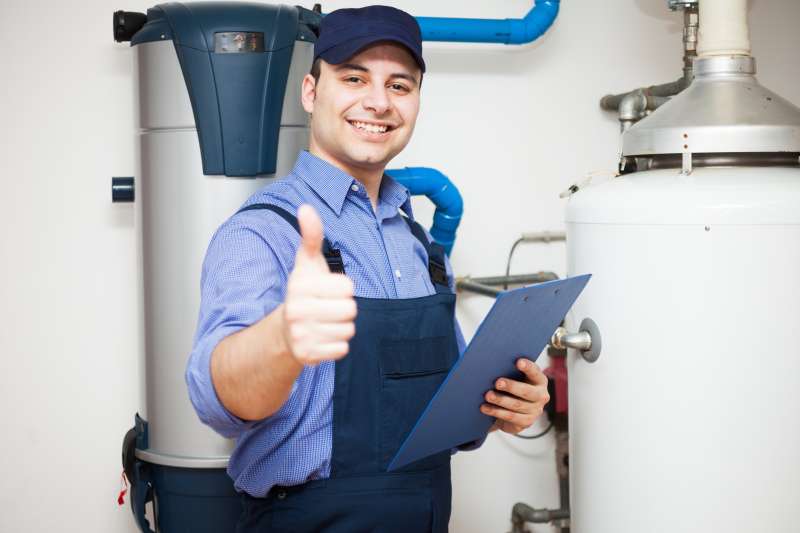The Value of Water Conservation
As you're well aware, the global water situation is a pushing problem that needs prompt attention. You may be shocked to uncover just how much your day-to-day water use influences this essential scenario. By taking on easy yet reliable preservation methods, you can add to the service and ensure a lasting water future. From dealing with leaks to upgrading your home's fixtures, every decrease you conserve makes a distinction. Captivated? Dive deeper right into the globe of water conservation to reveal the steps you can require component of the change.
Trick Takeaways
- Water scarcity and restricted accessibility to tidy drinking water are significant worldwide situations affecting billions of people worldwide.
- Climate adjustment exacerbates water scarcity via dry spells, floods, and disturbances to seasonal water accessibility.
- Carrying out water preservation methods, such as water recycling, effective components, and aware use behaviors, can substantially decrease family and commercial water usage.
- Lasting water monitoring practices in agriculture, like drip watering and water-efficient crop selection, can enhance water usage and boost food production.
- Federal government regulations, building codes, and private sector initiatives play a vital function in advertising water preservation and incentivizing the adoption of lasting practices.
The Worldwide Water Situation
The worldwide water situation is a pushing problem that affects areas worldwide, with billions of people doing not have access to tidy, safe alcohol consumption water. This crisis is driven by a mix of elements, including population development, industrialization, and environment change. As water scarcity comes to be extra common, it's essential to increase global understanding and implement effective services.
One of the key water deficiency options is advertising conservation efforts. This includes enlightening individuals and communities on the value of water conservation, urging the fostering of water-efficient technologies, and applying plans that incentivize lasting water usage. By elevating understanding and equipping people to take action, we can work towards a future where every person has access to the water they need to prosper.
In addition, international partnership is basic in addressing the water crisis. Federal governments, companies, and people need to come together to share knowledge, resources, and best methods for water administration. This collective effort can help drive innovative services and assure equitable access to this essential source.
Household Water Conservation Tips
Saving water in your home is a simple means to battle the worldwide water situation. By embracing basic practices, you can substantially decrease your home's water usage and contribute to the sustainable management of this priceless resource.
Start by mounting low-flow showerheads and faucets, which can save thousands of gallons each year. Turn off the tap while cleaning your teeth or shaving, and run the dishwasher and cleaning machine only with complete loads.
Consider rain harvesting by setting up a collection system to sprinkle your interior plants and outside yards. This not only saves metropolitan water yet likewise lowers stormwater overflow.
Speaking of plants, select drought-tolerant types that require much less watering. Deal with any type of leakages promptly, as a single leaking faucet can squander approximately 3,000 gallons annually.
Influence of Climate Adjustment
Environment modification straight influences water availability, aggravating the global water dilemma. Dry spells, floods, and melting glaciers disrupt the all-natural water cycle, resulting in water scarcity in some regions and water extra in others.
You must recognize just how these climate-driven adjustments influence your local water supply and adjust your water preservation initiatives appropriately.
Moving environment patterns are modifying precipitation degrees and intensifying extreme climate events in your area. Prolonged droughts strain surface and groundwater sources, forcing you to count more on limited materials. Alternatively, heavy rainfalls and floodings overload water treatment facilities, contaminating drinking water.
As glaciers and snowpacks melt, seasonal water schedule becomes much less predictable, making long-lasting planning and conservation much more essential.
To resolve these environment change influences, you must very closely monitor your neighborhood water problems and adjust your water-saving methods. By remaining notified and adapting your actions, you can assure a trusted, lasting water future for your household and neighborhood, even despite an altering climate.
Lasting Water Administration Strategies
You can begin saving water in your home by executing water recycling techniques.
Consider setting up low-flow fixtures and appliances to lower house water usage.
Additionally, small changes like turning off the faucet while brushing teeth and only running full tons of laundry can make a substantial effect on your water conservation initiatives.
Water Recycling Techniques
Reusing water through greywater systems and rain harvesting can greatly minimize reliance on freshwater sources, consequently preserving this valuable resource.
Greywater recycling entails accumulating and dealing with secondhand water from showers, sinks, and cleaning devices, then reusing it for landscape irrigation or commode flushing. This basic method can save thousands of gallons of water every year.
Rain harvesting, on the various other hand, captures and shops rainfall for non-potable uses like gardening and car cleaning. By mounting rainfall barrels or larger tanks, you can draw away stormwater drainage and minimize the burden on municipal water products.
These water recycling methods are both cost-effective and environmentally friendly. They reduce stress on water treatment centers, lower power usage, and reduce wastewater discharge.
And also, they permit you to take an energetic function in protecting water resources for future generations. So why not begin reusing water at home today? It's a simple way to make a significant impact on water conservation in your community.
House Water Preservation
Beyond water recycling, there are numerous various other family water preservation methods that can substantially decrease your water usage and environmental effect.
One reliable strategy is to mount water-efficient home appliances and components throughout your home. Select high-efficiency cleaning machines, dish washers, showerheads, and bathrooms that utilize significantly much less water than standard designs.
One more wise technique is to incorporate rainwater harvesting by establishing a system to collect and keep rainwater for outdoor irrigation and even interior use.
Furthermore, take into consideration applying a greywater reuse system that diverts secondhand water from sinks, showers, and cleaning machines for purging commodes or watering plants. trust a trader plumber
These basic yet impactful steps can help you preserve priceless water sources and reduced your household's environmental impact.
With a few calculated changes, you can make a meaningful distinction in your water usage and do your component to promote sustainability.
Agricultural Water Conservation Practices
Throughout the agricultural market, farmers utilize a variety of water conservation methods to make best use of water effectiveness and decrease waste. One prominent method is drip watering, which supplies water straight to the origins of plants, minimizing evaporation and guaranteeing targeted water application. This effective system can minimize water use by up to 60% contrasted to standard sprinkler irrigation.
One more essential practice is plant rotation, where farmers tactically alternative various plants in the exact same area over succeeding growing periods. This not only renews dirt nutrients but additionally aids preserve water by picking plants with comparable water requirements. By very carefully preparing their crop rotations, farmers can assure their fields get simply the right amount of water, with no inefficient overwatering.
Furthermore, many farmers have embraced accuracy farming innovations, such as soil dampness sensors and weather condition data analytics, to tweak their irrigation schedules and additional maximize water use. With these ingenious techniques, the farming neighborhood remains to lead the way in lasting water administration.
Industrial Water Preservation Solutions
As an entrepreneur, you've got alternatives when it concerns preserving water in your commercial operations.
Process water recycling can drastically reduce your freshwater demands, while wastewater therapy systems let you recycle water onsite.
Implementing these commercial water conservation solutions is a wise means to lower expenses and minimize your environmental effect.
Refine Water Recycling
One effective industrial water preservation service is procedure water recycling, which allows you to reuse and reuse water within your procedures, decreasing freshwater withdrawal and wastewater discharge.
Through procedure optimization, you can recognize opportunities to reuse and recycle water streams, minimizing the need for freshwater intake. This can involve innovations like filtration, distillation, or dissipation, which detoxify and recondition the water for reuse in your processes.
By executing procedure water recycling, you'll not only preserve water resources however also see advantages in resource healing. You can recover important products or by-products from the recycled water, transforming waste right into possible revenue streams.
This circular approach to water monitoring assists you achieve greater sustainability and performance in your procedures. Buying process water reusing demonstrates your dedication to ecological stewardship and can provide long-term cost financial savings for your business.
Wastewater Treatment Systems
Wastewater treatment systems are one more efficient industrial water preservation solution, enabling you to cleanse and reuse water within your operations.
These systems leverage various innovations like biological therapy, chemical therapy, and membrane layer filtration to eliminate contaminants and redeem water for reuse, reducing the need for freshwater consumption.
Biological therapy uses microorganisms to break down organic matter, while chemical therapy depends on coagulants and anti-bacterials to eliminate dissolved solids and pathogens.
Membrane layer purification, on the other hand, literally divides contaminants from the water using semi-permeable membranes.
By applying these wastewater treatment modern technologies, you can dramatically increase water reuse rates, reducing freshwater withdrawal and wastewater discharge.
This not only preserves water sources but likewise lowers your operational expenses and environmental influence.
Welcoming wastewater therapy systems is a tactical move towards sustainable water management and demonstrates your commitment to liable water stewardship.
Conserving Water in Landscaping

Landscape design options substantially affect your water usage, so you'll wish to prioritize water-efficient plants and watering techniques.
Drought-resistant plants, often called xeriscaping, are an exceptional method to lower your outdoor water usage. These durable, native types thrive with very little watering, cutting your landscape design costs and water expenses. Combine them with compost to secure wetness and restriction evaporation.
Trickle irrigation systems also save water by providing it straight to plant origins, avoiding wasteful expenses lawn sprinklers. You can even harvest rainwater in a tank to supplement your watering needs.
Past your plantings, consider permeable surfaces like porous pavement or gravel that permit water to percolate into the ground instead of escaping.
With some wise planning, you can develop a gorgeous, low-maintenance backyard that makes use of a fraction of the water of a conventional lawn and garden. Your budget and the environment will thank you.
Water Preservation and Public Policy
You can not overlook the effect of government policies on water preservation efforts.
Numerous private business have actually also taken their own initiatives to advertise water-saving practices.
As you discover this subtopic, you'll find how public policy and private sector activities intersect to deal with journalism issue of water conservation.
Government Regulations Influence
Over the years, government guidelines have actually had a substantial influence on water conservation efforts, shaping public laws that promote sustainable water use. Through policy enforcement and regulatory frameworks, policymakers have played an important role in driving water conservation initiatives at the local and nationwide levels.
One famous example is the execution of water-efficient building regulations and appliance requirements. By mandating making use of low-flow components and water-saving technologies, governments have actually incentivized property owners and services to adopt water-conscious practices. This has actually resulted in significant decreases in water intake, contributing to the overall preservation of this precious source.
In addition, regulative bodies have developed water-use constraints and prices frameworks to urge preservation. From lawn-watering schedules to tiered pricing systems, these procedures have actually successfully curbed extreme water use, prompting people and areas to be extra conscious of their water usage behaviors.
Undoubtedly, government laws have actually been a driving pressure in promoting water conservation, cultivating a culture of sustainability and accountable resource monitoring.
Economic Sector Initiatives
Alongside federal government policies, the economic sector has emerged as a principal ahead of time water conservation initiatives, leveraging innovative methods and partnerships to drive sustainable change.
Business duty has actually ended up being a driving force, as firms identify their duty to reduce water use and decrease ecological influence.

From carrying out innovative water-efficient modern technologies to teaming up with local neighborhoods, the private sector is heading innovative solutions that match public law efforts.
The Economic Advantages of Preservation
Saving water can provide a wide range of economic benefits for both people and communities.
Minimizing water use not only lowers utility expenses, yet it also minimizes the requirement for costly infrastructure developments and maintenance, eventually saving taxpayer dollars. Via financial rewards, such as rebates and discount rates for water-efficient home appliances, homeowners can recognize significant expense savings on their monthly expenses. Similarly, services that carry out water conservation steps can enjoy improved productivity by cutting operational costs.
On a bigger scale, areas that focus on water conservation can avoid the substantial cost associated with establishing new water sources or broadening treatment centers. By purchasing public education and learning and advertising water-saving methods, city governments can ensure a lasting water while maintaining prices down for locals.
Ultimately, the economic advantages of water conservation prolong beyond the person, benefiting the whole area via reduced framework expenses and an extra effective use of minimal water resources.
Educating the Next Generation
Enlightening the next generation about water preservation is vital for making certain a sustainable future. You can start by showing children the relevance of water as a minimal resource and the easy actions they can take to decrease consumption, such as switching off the tap while brushing their teeth or taking shorter showers. Engaging students via hands-on activities and interactive lessons will aid them create a much deeper understanding and gratitude for water conservation.
Water education and learning initiatives that target young people can have a lasting influence. By fostering a sense of environmental stewardship from a very early age, you're equipping the future generation to make enlightened decisions and take definitive actions to conserve this priceless source.
From college educational programs to neighborhood outreach programs, there are countless methods to obtain young people involved and bought water preservation. Keep in mind, today's pupils are tomorrow's leaders, so instilling these worths now will certainly pay rewards for many years to find.
Regularly Asked Questions
Is It Possible to Live Without Water?
No, you can't live without water. Water is essential for your survival. Without it, you 'd swiftly come to be dried and your body would begin shutting down.
While some survival strategies, like drinking your very own pee, can temporarily fend off water deficiency, they're not long-lasting solutions. Eventually, you need a reliable source of tidy, drinkable water to live.
Water scarcity is a significant issue, but the simple reality is you can not survive without it.
How Much Water Does the Typical Person Use Daily?
You might be surprised to find out that the ordinary person makes use of around 80-100 gallons of water daily. This includes your everyday usage practices, like bathing, flushing the commode, and running the dish washer.
While it's practically feasible to live without water, your everyday water use stats reveal simply how much we count on this precious resource.
Thinking about the value of water preservation is important to guarantee we've enough for the future.
Is It Safe to Consume Alcohol Recycled Wastewater?
Drinking recycled wastewater is safe as long as the water experiences extensive filtration procedures. These techniques remove impurities and make the water as clean as freshwater.
However, public perception of alcohol consumption recycled wastewater can be a difficulty. It is very important to educate individuals regarding the safety of water purification modern technology and emphasize that recycled water is tantamount from various other sources.
With correct info and openness, people can feel confident about the safety of this lasting water source.

Can Plants Endure With Limited Water?
Can plants make it through with a limited water? Definitely!
By utilizing drought-resistant plants and xeriscaping techniques, you can develop a vivid yard that prospers on marginal water.
These sturdy species are adjusted to completely dry problems, needing much less irrigation than conventional landscape design.
With a little planning and the right plant selections, you can delight in a lush, water-wise oasis, also when faced with minimal rains or water limitations.
How Can I Track My Home Water Use?
Tracking your family water use is essential to recognizing your consumption patterns.
You can utilize a variety of approaches to check your use, such as setting up wise meters or reading your water meter on a regular basis.
Digital tools like water monitoring apps can likewise aid you keep tabs on your water use and identify locations where you can make changes to lower your usage.
Final thought
Water conservation is necessary to address the worldwide water crisis.
By adopting lasting techniques, such as greywater recycling and efficient fixtures, you can substantially minimize water waste and guarantee fair water access for future generations.
Enlightening communities and participating in conservation initiatives likewise benefits the economic climate by decreasing costs related to water supply and framework.
It's time to take action and become a component of the solution.
